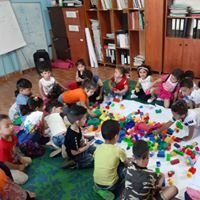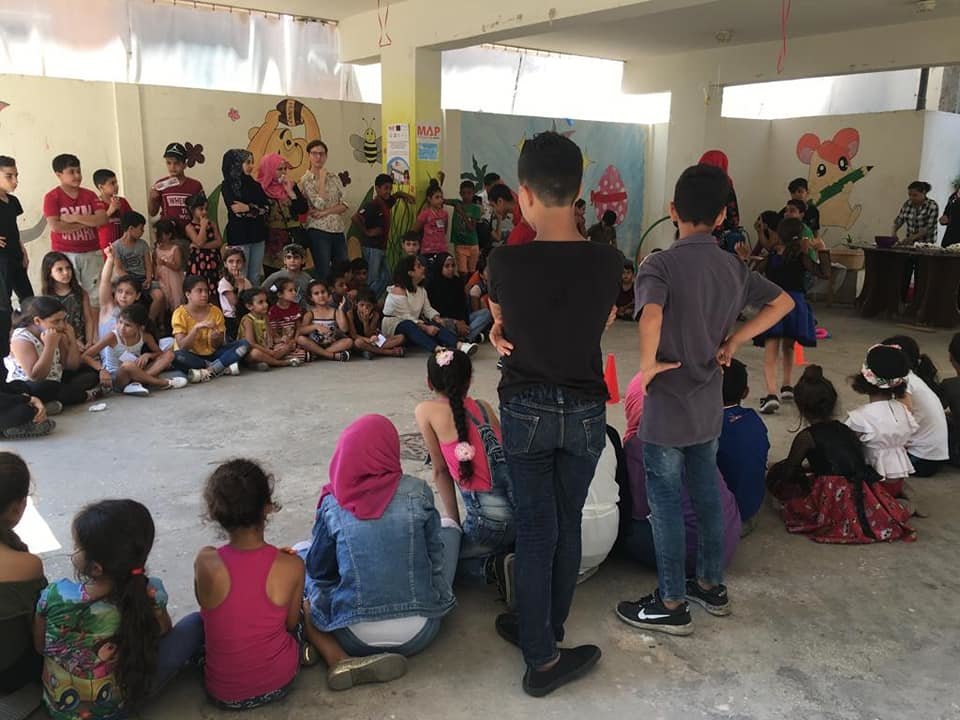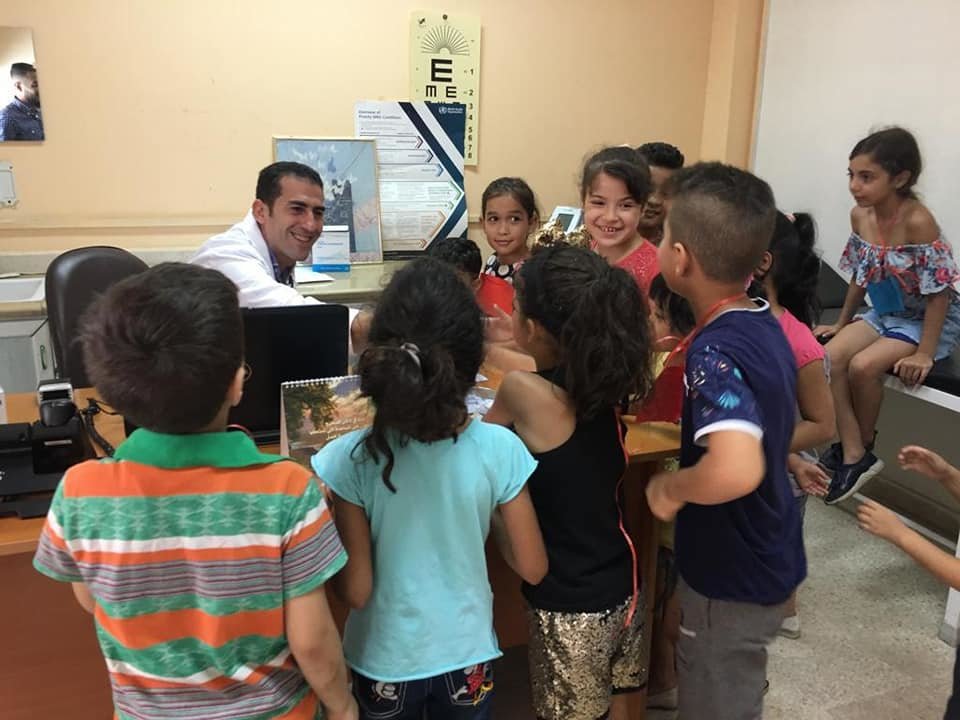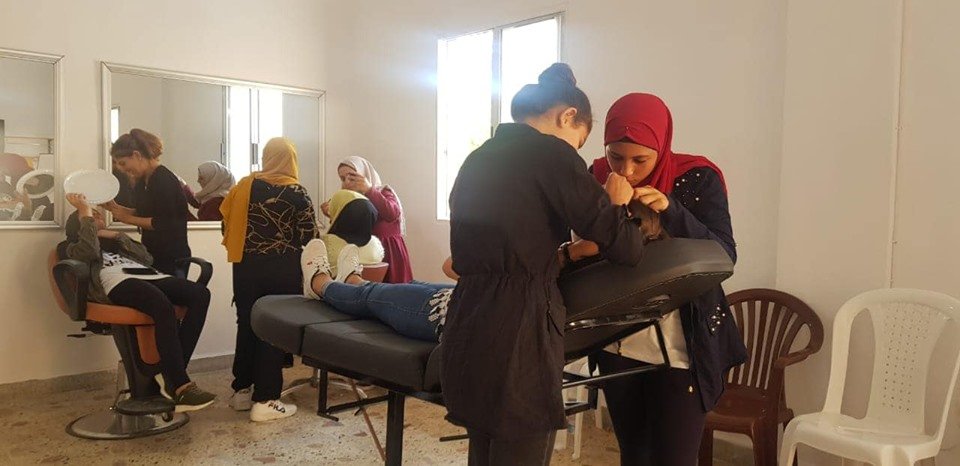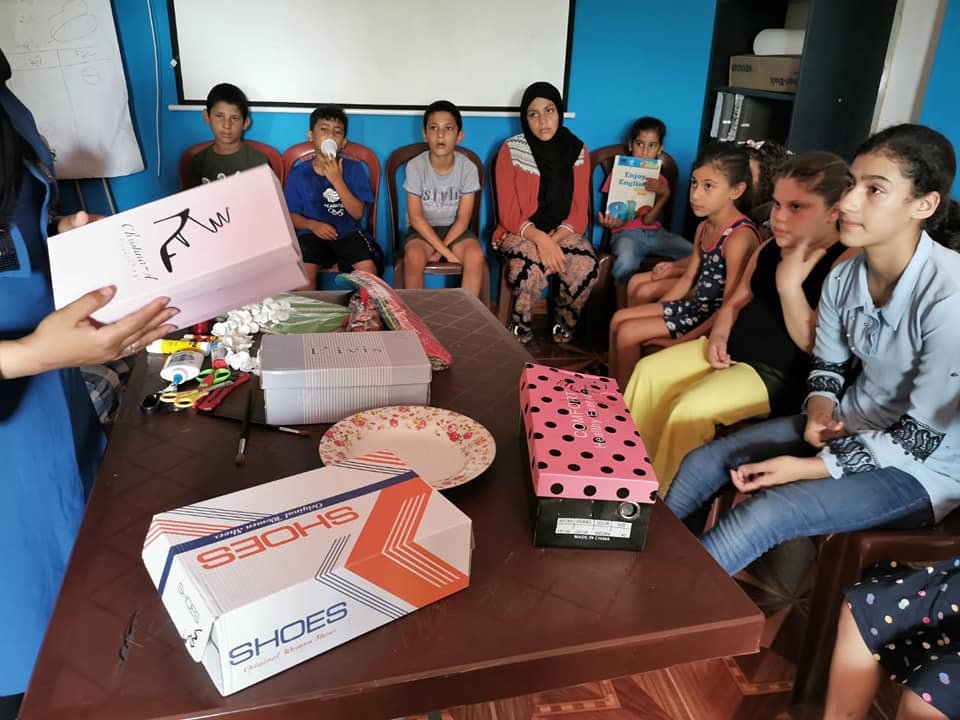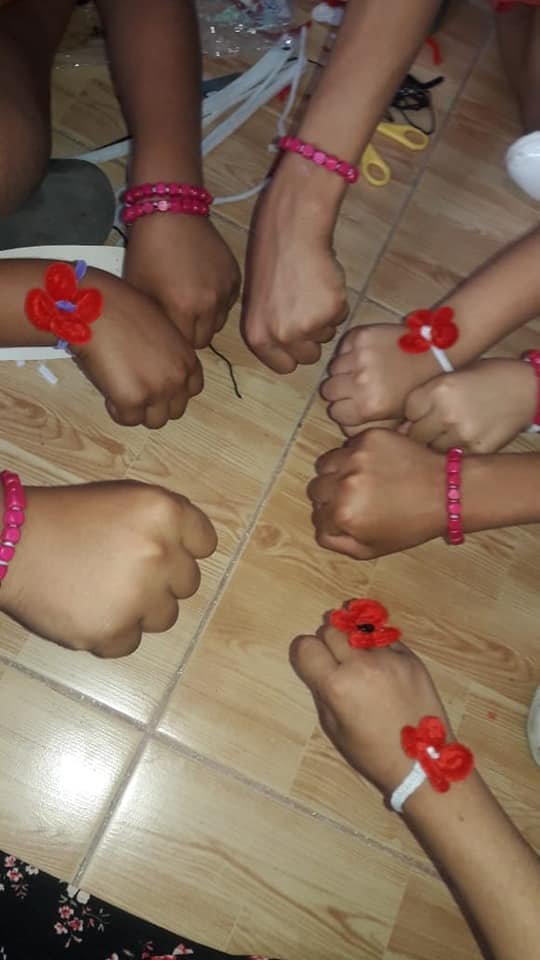By Hiba Hamzi | Program Coordinator
Background during and after the implementation of the project;
Over the past year, as pressure on basic services has mounted and economic opportunities dwindled, the displaced have increasingly turned to negative coping strategies. At the same time, attitudes among Lebanese host communities have hardened[1].
Palestinian refugees are mostly hosted by the poorest communities in Lebanon. The average age of those registered with UNRWA is 25, and 51 per cent are women, 26 per cent are school age children and 15 per cent are infants[2]. As in the beginning of the Syrian crises Headed households did not accompany their families when they flee out of Syria where fathers decided to stay inside Syria with their adolescent males.
The Palestinian community in Lebanon is young with 36% of the total population of Palestinian refugees from Lebanon (PRL) aged between 14 and 35 years and for Palestinian refugees from Syria (PRS) the number is 37%. As of October 2018, the Government of Lebanon (GoL) estimates that the country hosts 1.5 million Syrians who have fled the conflict in Syria (including 950,3341 registered as refugees with UNHCR, of which 25.2% are women, 19.4% men, 27.1% are girls, 28.3% are boys with diverse backgrounds and specific needs), along with 28,800 Palestinian refugees from Syria (PRS) and a preexisting population of an estimated 180,000 Palestinian refugees from Lebanon (PRL) living in 12 camps and 156 gatherings.
Palestinian children in Lebanon suffer from multiple risk factors and disadvantages that impede their development. Palestinian refugee children in Lebanon form a distinct and disadvantaged sector, characterized not only by extreme poverty, but also by a mix of low status, limited opportunities, increased vulnerability, and social exclusion. High levels of stress and anxiety negatively affect their healthy growth and development.
Naba’a Achievements; During the last period,
- During the reporting period, Naba’a have applied a Program that supports and assists most 600 children and adolescents in improving their writing & reading skills, at the same time helps them in recognizing the names of training tools in English. The pre & Post Tests show the improvement on the level of the BLN Trainees. Numeracy is not limited to the ability to use numbers, to add, subtract, which will highly focused on English Language. Numeracy encompasses the ability to use mathematical understanding and skills to solve problems and meet the demands of day-to-day living in complex social settings. Therefore, 600 dropout of school children 10-14 years from Southern and North non-official gatherings, males and females (SRS, PRL, Lebanese and PRS) enhanced in their basic literacy and numeracy skills in order to think and communicate quantitatively, to make sense of data, to have a spatial awareness, to understand patterns and sequences, and to recognize situations where mathematical reasoning can be applied to solve problems knowing that, a pre- and post- test will be conducted to evaluate the enhancement of the educational skills of the youth.
- 300 Children participated in ECD- Summer activities program, including active learning techniques, learning through playing and depends on the learning style of child which means translate the information in to simplest way, this way that we adopt in kindergartens corners, and has proven to be effective in achieving good results in the field of education as well as using means of illustration and educational games, and by using technology (Videos, phones, laptop, Social media like: YouTube…).
- It is worthy to note that, 25% of the targeted children are suffering from different psychosocial problems and children with disability, such psychosocial problems, are (epilepsy, aggressiveness, isolation) other suffering from physical disabilities and having psychological problems since he considered as a disabled (handicapped) he can’t move and play with his classmates.
- The children become able to integrate with their community and to integrate with their schoolmates through educational, recreational and behavioral activities and providing them interactive atmosphere to learn about themselves through playing methodology
- In the pre- schooling age, the children be able to read, write, hold the pencil correctly and differentiate between letters, shapes, months of the year, numbers.
- 35 adolescents finalized their vocational training with special majors that give them opportunities to get a job and to afford their daily expenses. Those adolescents participated in life skills program (Group dynamic, communication skills, civic education, conflict transformation), aiming to develop their personality and enhance their self esteem.
Case study;
Code: M.M001
Age: 16 years
Nationality: Syrian
Class and School: Vocational Training / Al Rahma Institute / Women's Makeover
Hobbies: Women's Makeover
Number of family members: 5 brothers in addition to her mother and stepfather
Arrangement among her brothers: the third
Address: Ein Al-Hilweh Camp – Al Baha'a Shelter
The girl is living with her mother, stepfather and her three brothers in Bahaa building in Ein al-Hilweh. The house is consisting of a large room which meets all of their needs as dining, sleeping and sitting. Nonetheless she can't behave or act as she likes to do in order not to disturb stepfather or mother.
She used to live with her father and her mother, but during the war she lost her father. When her mother believes that her husband died, she fled with her children to Lebanon and after a period of time she get married and gave birth to a child aged eight months.
The girl was studying at Ein El-Helweh School, but because of her mother's pregnancy she was forced to take care of her brothers and help her mother, so the mother have decided to separate her daughter from school without taking into account that she was one of the high performers students in the class. As, she believes that this won't help her daughter, whereas learning how to cook and clean will be better for her as it is considered more important than studying at school. The girl stayed at home for two years and during this period of time she didn't spend her time neither in going out nor in playing because her mother think that she is no longer a small girl and she can't go out by herself.
But when the mother was absent from the house, the girls was subjected to verbal harassment by her stepfather and he was telling her, "Take a thousand and give me a kiss" as she said. After several attempts, the girl told her uncle, and then her uncle talked to him in order to keep him away from her as he told him that he will tell the security forces. Thus, the latter felt afraid and got away from the girl for a while as he started to provoke problems with her mother, as the mother started to violence her and forced her to take responsibility about what is happening, then the girl started to repress and doing what her mother wants her to do as cleaning and taking care of her brothers.
The economic situation: poor , where they are living in one room inside a refugee shelter and there is no monthly income since the uncle does not work and the mother used to work as a maid but she doesn't meet all their needs. But during her pregnancy period she had to leave work, which led them to suffer from a tight economic situation.
- Health status: the girl doesn't suffer from anything, but the mother is suffering from diabetes.
Social situation:-
The relationship between the girl with her father: it's not good. The father was missing, thus the mother got married, and then they noticed that he was detained, which forced him to leave his family and return to Syria, this has increased the girl 's sense of hate toward him as she didn't accept him, where there is no communication between them.
The relationship between the girl and her mother: it is dispersed, the girl loves her mother but she is very afraid of her and can't tell her or talk with her about anything, so we've noticed that the relationship is anxious.
The relationship between the girl and her brothers: it is good, since she is taking care of them but because they are younger than her, so she can't talk with them about her secrets or anything that she is going through.
- The problem in which the girl is suffering from is: neglect and exploitation / verbal harassment.
- Data collection: girl / her uncle and his wife / vocational training teacher.
[1] Lebanon Stabilization and Recovery Program – 2017
[2] Palestinian Refugee children and women (Lebanon – Jordan) – UNICEF
Links:
Project reports on GlobalGiving are posted directly to globalgiving.org by Project Leaders as they are completed, generally every 3-4 months. To protect the integrity of these documents, GlobalGiving does not alter them; therefore you may find some language or formatting issues.
If you donate to this project or have donated to this project, you can receive an email when this project posts a report. You can also subscribe for reports without donating.
Support this important cause by creating a personalized fundraising page.
Start a Fundraiser